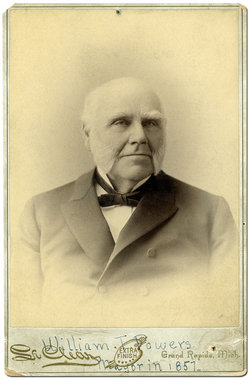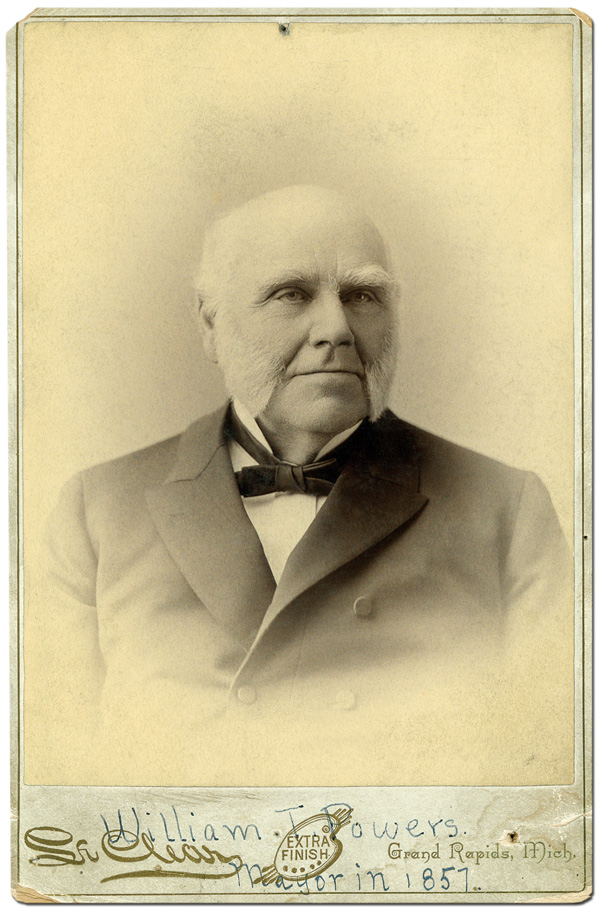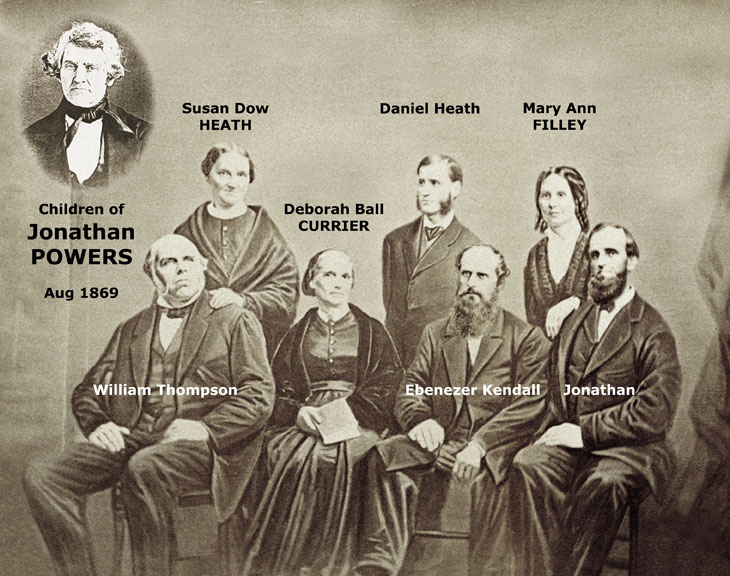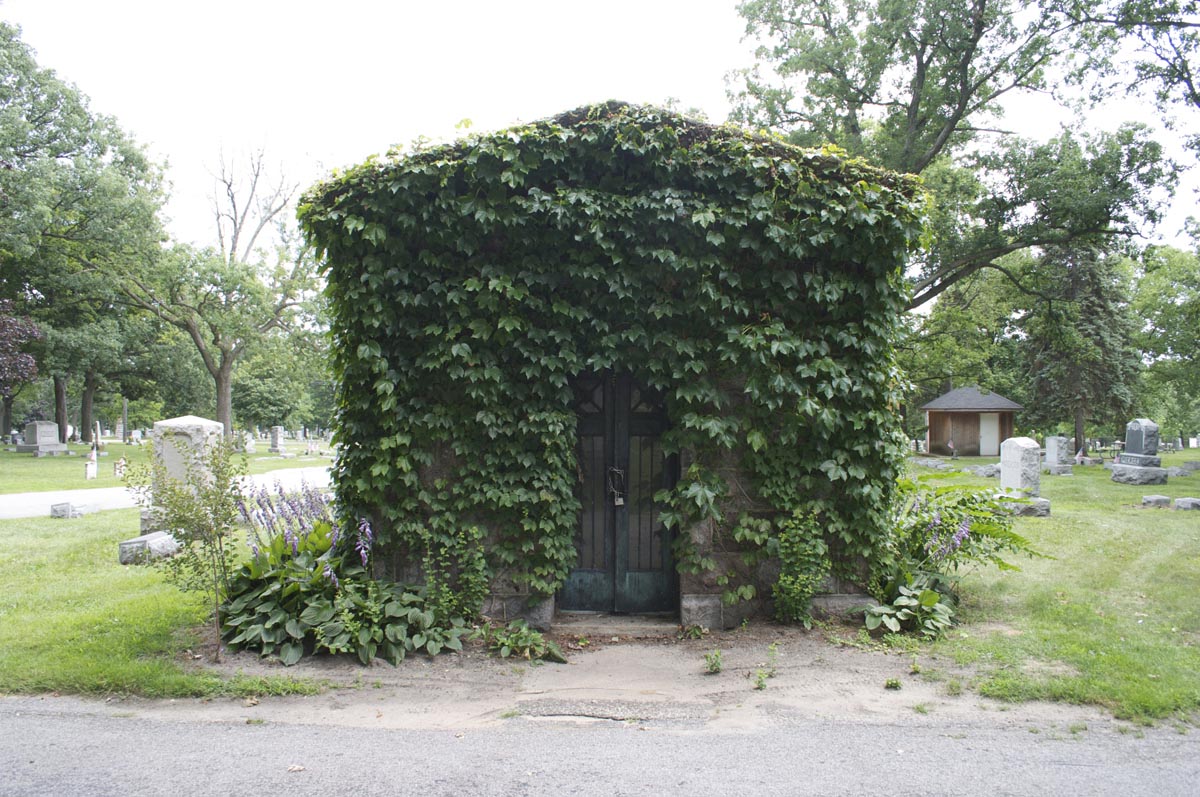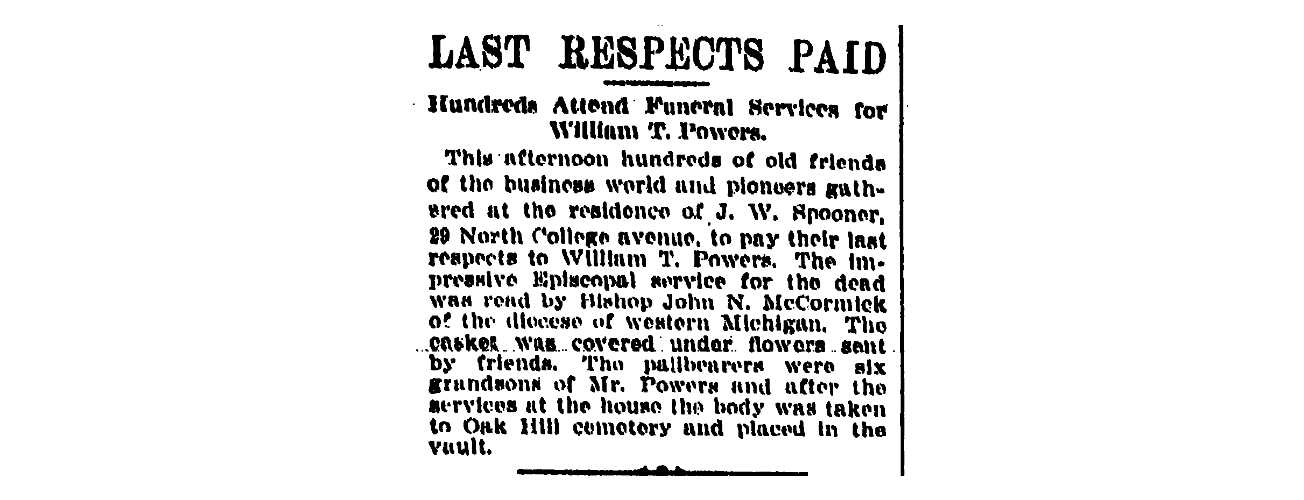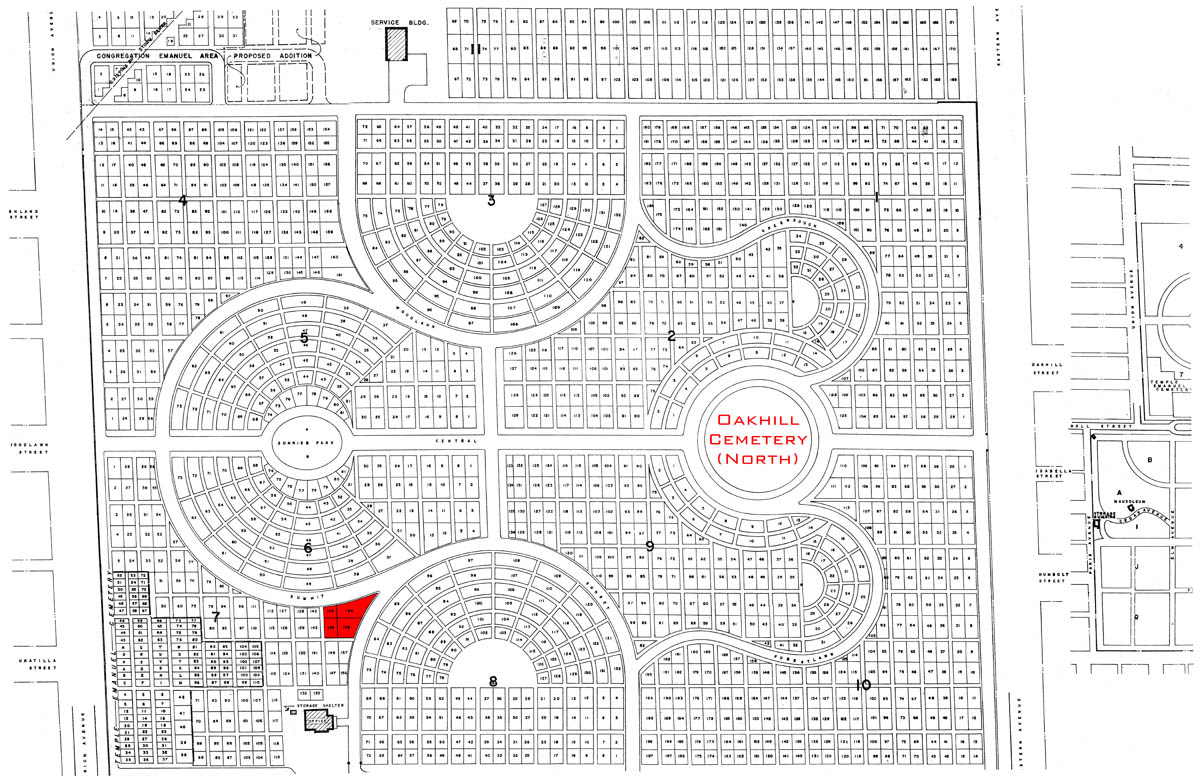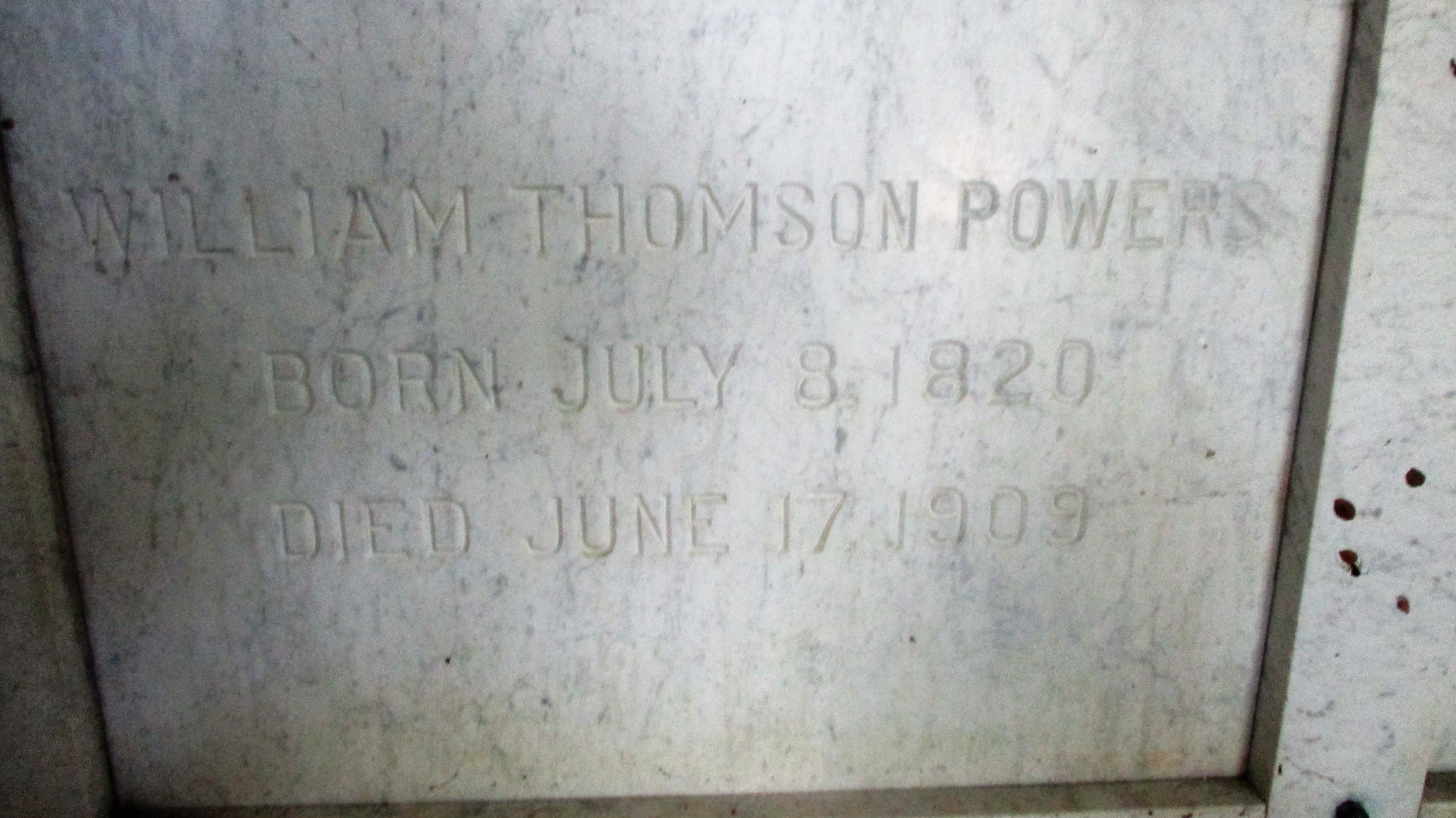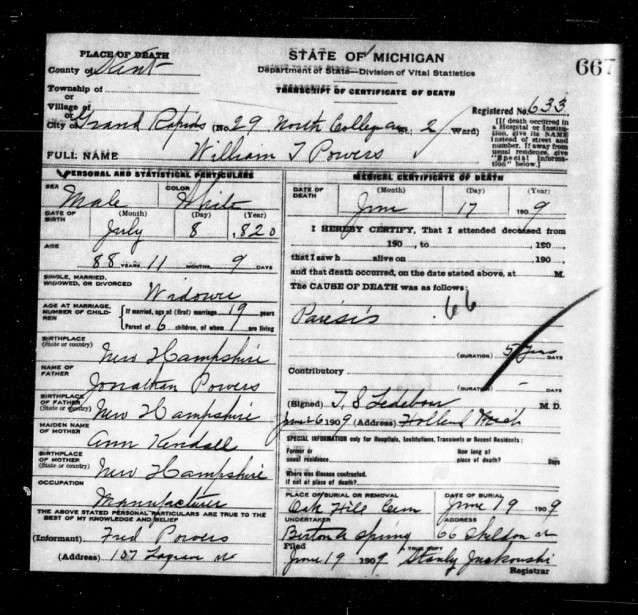WILLIAM T. POWERS, manufacturer and capitalist, was born at Bristol, Grafton, New Hampshire, July 8, 1820. His parents Jonathan and Anna (Kendall) Powers, were natives of the same place involved in the making of fabrics along the river on Central Avenue in Bristol. In 1826 the family removed Lansingburgh, New York, where he received a common school education, and after he was eighteen years of age learned the trade of cabinet maker. He early showed aptness and skill at machine work, a faculty which ever after proved useful and profitable to him. In June, 1847, Mr. Powers and his family, then consisting of his wife and one child, came to Grand Rapids. His chief business capital at the time was a good trade, about $300, in cash, a pair of willing hands and a spirit of energy and determination.
Here he began work in a small shop at the southeast corner of Fountain and Ionia streets, where he rented bench room. Soon afterward he secured better quarters by the east bank of the river above Bridge street and began working by machinery, using water power; making furniture of nearly all kinds then produced, and chairs, not only for the home trade, but for exportation, and having a salesroom near the foot of Canal Street. In 1849 he formed a partnership with Ebenezer Morris Ball, under the firm name of Powers & Ball, in the furniture trade, their business place being near where is the south entrance to the Arcade.
In 1852 they built a sawmill to which they added a larger structure for a factory, on Erie street, where the business grew rapidly; soon giving work to some forty employes [sic], and establishing an export trade in ready made stock for chairs, furniture and reapers. In January, 1855, this partnership was dissolved and Mr. Powers turned his attention to lumbering, operating a steam mill with a circular saw, the first of its kind in this part of the State, which the firm had built above Leonard street on the west bank of the river. About the same time he constructed a machine with a gang of circular saws for slitting thick plank into siding and flooring. Again he added furniture making to his business, and for a time before the civil war had an extensive sales room on Canal street, near Erie.
In 1865 and 1866 he purchased the river frontage necessary and in the three following years constructed the West Side Water Power Canal, a description of which is given in this book. As a builder since he came to Grand Rapids, Mr. Powers has erected some thirty or more structures for houses, mills, stores, factories and other purposes. Most prominent among these is Powers' Grand Opera House. Notable in his work, also, is the Arcade artesian well, where so many thousands daily partake of its refreshing waters, free - a public benefaction.
In 1880 he caused the organizing of an electric lighting plant and company in this city, the first city lighting by electricity in the State. The works are operated chiefly by water power. William T. Powers & Son in 1885 purchased and have since operated the Michigan Iron Works at the foot of Louis street. Indomitable and persistent industry and energy have marked the career of Mr. Powers in Grand Rapids; and besides his successful enterprises at home he has been actively and prosperously engaged in the development of valuable properties in and near Spearfish, Lawrence county, Dakota Territory - the Black Hills region - where he has a water power of some 300 to 400 horse power, some manufacturing buildings, and about 400 acres of land. He has always exhibited great interest in the material growth and advancement of Grand Rapids.
He was chosen City Treasurer in 1853 and again in 1854, serving two terms. In 1857 he was elected Mayor and served one term, during which he started and gave a lasting impetus to the system of street improvements that has been so prominent a factor in city development and progress. Similarly he has stimulated municipal growth by his service in the Board of Public Works from 1873 to 1878, where he was prominent in the establishment of the water works system. As a politician he has never sought office, but has been a steady and active adherent of the Democratic party.
As a man, an influential citizen and a neighbor, he is held in universal esteem. From a modest beginning, he has built himself a fine estate and secured a handsome competence, in the accumulation of which he has exhibited rare forecast and sound judgment. He is yet vigorous and in active business. Mr. Powers married, in 1838, at Troy, New York, Louisa Hall, a native of London, England. of six children born to them, four are living - William Henry, Sara Anna, Mary Louisa and Charles Ball Powers.
He died at the home of his daughter Mary Louisa (Powers) Spooner, College Avenue, Grand Rapids.
WILLIAM T. POWERS, manufacturer and capitalist, was born at Bristol, Grafton, New Hampshire, July 8, 1820. His parents Jonathan and Anna (Kendall) Powers, were natives of the same place involved in the making of fabrics along the river on Central Avenue in Bristol. In 1826 the family removed Lansingburgh, New York, where he received a common school education, and after he was eighteen years of age learned the trade of cabinet maker. He early showed aptness and skill at machine work, a faculty which ever after proved useful and profitable to him. In June, 1847, Mr. Powers and his family, then consisting of his wife and one child, came to Grand Rapids. His chief business capital at the time was a good trade, about $300, in cash, a pair of willing hands and a spirit of energy and determination.
Here he began work in a small shop at the southeast corner of Fountain and Ionia streets, where he rented bench room. Soon afterward he secured better quarters by the east bank of the river above Bridge street and began working by machinery, using water power; making furniture of nearly all kinds then produced, and chairs, not only for the home trade, but for exportation, and having a salesroom near the foot of Canal Street. In 1849 he formed a partnership with Ebenezer Morris Ball, under the firm name of Powers & Ball, in the furniture trade, their business place being near where is the south entrance to the Arcade.
In 1852 they built a sawmill to which they added a larger structure for a factory, on Erie street, where the business grew rapidly; soon giving work to some forty employes [sic], and establishing an export trade in ready made stock for chairs, furniture and reapers. In January, 1855, this partnership was dissolved and Mr. Powers turned his attention to lumbering, operating a steam mill with a circular saw, the first of its kind in this part of the State, which the firm had built above Leonard street on the west bank of the river. About the same time he constructed a machine with a gang of circular saws for slitting thick plank into siding and flooring. Again he added furniture making to his business, and for a time before the civil war had an extensive sales room on Canal street, near Erie.
In 1865 and 1866 he purchased the river frontage necessary and in the three following years constructed the West Side Water Power Canal, a description of which is given in this book. As a builder since he came to Grand Rapids, Mr. Powers has erected some thirty or more structures for houses, mills, stores, factories and other purposes. Most prominent among these is Powers' Grand Opera House. Notable in his work, also, is the Arcade artesian well, where so many thousands daily partake of its refreshing waters, free - a public benefaction.
In 1880 he caused the organizing of an electric lighting plant and company in this city, the first city lighting by electricity in the State. The works are operated chiefly by water power. William T. Powers & Son in 1885 purchased and have since operated the Michigan Iron Works at the foot of Louis street. Indomitable and persistent industry and energy have marked the career of Mr. Powers in Grand Rapids; and besides his successful enterprises at home he has been actively and prosperously engaged in the development of valuable properties in and near Spearfish, Lawrence county, Dakota Territory - the Black Hills region - where he has a water power of some 300 to 400 horse power, some manufacturing buildings, and about 400 acres of land. He has always exhibited great interest in the material growth and advancement of Grand Rapids.
He was chosen City Treasurer in 1853 and again in 1854, serving two terms. In 1857 he was elected Mayor and served one term, during which he started and gave a lasting impetus to the system of street improvements that has been so prominent a factor in city development and progress. Similarly he has stimulated municipal growth by his service in the Board of Public Works from 1873 to 1878, where he was prominent in the establishment of the water works system. As a politician he has never sought office, but has been a steady and active adherent of the Democratic party.
As a man, an influential citizen and a neighbor, he is held in universal esteem. From a modest beginning, he has built himself a fine estate and secured a handsome competence, in the accumulation of which he has exhibited rare forecast and sound judgment. He is yet vigorous and in active business. Mr. Powers married, in 1838, at Troy, New York, Louisa Hall, a native of London, England. of six children born to them, four are living - William Henry, Sara Anna, Mary Louisa and Charles Ball Powers.
He died at the home of his daughter Mary Louisa (Powers) Spooner, College Avenue, Grand Rapids.
Inscription
William Thompson Powers
Born July 8, 1820
Died June 17, 1909
Gravesite Details
Burial inside Powers Mausoleum
Family Members
Sponsored by Ancestry
Advertisement
Advertisement
